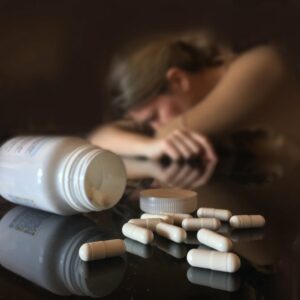First-year college students enjoy exciting opportunities to make new friends, boost their knowledge, and gain independence.
Unfortunately, they also face challenges that increase their risk of alcohol and drug abuse. Over time, these challenges can lead to addiction, a disease that makes you feel unable to control your substance use.
It’s not always easy to enter a new social environment. To fit in, many students start abusing alcohol or other drugs.
For example, at a party, a student may try to impress their peers by binge drinking (drinking a large amount of alcohol in a short amount of time).
This behavior significantly increases the risk of alcohol addiction. It can also cause alcohol poisoning, a potentially fatal condition that disrupts a person’s breathing and heart rate.
Peer pressure also makes students more likely to try illegal drugs such as heroin, cocaine, or methamphetamine. Because these substances are so powerful, it doesn’t take long to get addicted to them.
Some high schoolers want to use drugs but can’t due to parental supervision or oversight. Once they enter college, they can spend their free time however they want. While this freedom may excite students, it poses a significant risk of substance abuse and addiction.
To make matters worse, many colleges don’t enforce underage drinking laws on a consistent basis. On these campuses, it’s easy for first-year students to develop alcohol problems.
Most college students have no trouble accessing drugs. Alcohol appears at almost every party, and most people have friends (or friends-of-friends) who can connect them with other substances as well. In these cases, students may use drugs simply because they can.
In addition, they may assume that if lots of people use a drug, it must be safe. However, even popular, supposedly low-risk drugs like marijuana can be addictive if used regularly.
College can cause serious stress. Students must keep up with demanding coursework, maintain a social life, and, in some cases, manage part-time jobs or internships.
To cope with these stressors, some students turn to drugs. Many use alcohol or sedative drugs like Xanax to relax and treat stress-induced insomnia (difficulty sleeping).
On the other hand, some students use stimulants, such as Adderall or Ritalin, to stay awake and complete assignments. These substances are so popular among college students that they’re often called “study drugs.”
When students rely on substances to ease stress, they’ll almost always develop an addiction.
Many college students live with mental health conditions such as anxiety, depression, post-traumatic stress disorder, and schizophrenia.
According to the National Institute on Drug Abuse, about half of people with mental health conditions develop drug addiction. That’s because many people use drugs to self-medicate.
For example, a student with a social anxiety disorder may abuse alcohol to feel more comfortable at parties. Similarly, a student with depression might use cocaine to feel happy and energized.
Freshmen are more likely to self-medicate than other students, as they may struggle to adjust to a new routine and find a support system on campus.
Drug addiction poses serious risks, including damaged relationships, financial difficulties, and life-threatening health problems. Fortunately, it’s treatable.
If you’re a college student who feels unable to stop using substances, contact your school’s health services department.
The staff can connect you with treatment programs, therapists, support groups, and other helpful resources like Ark Behavioral Health. You could also ask a parent or other trusted adult to help you find treatment.

